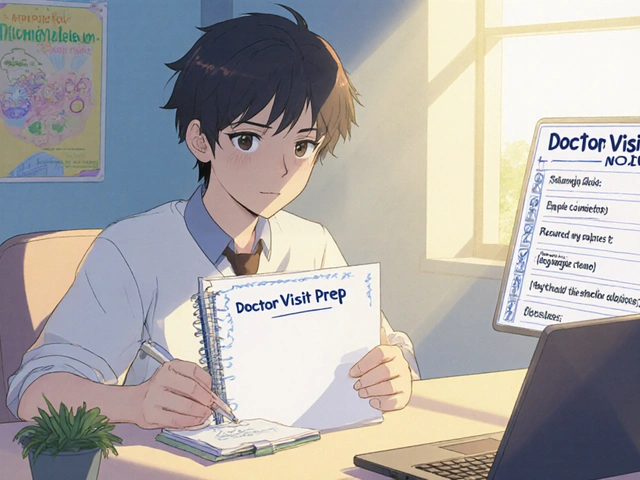Depression Management: Simple Steps to Feel Better Today
Feeling down for weeks? Struggling to enjoy things you once loved? You’re not alone, and there are real actions you can take right now. Below you’ll find clear advice on medication, therapy, and everyday habits that can lift your mood without the fluff.
Medications and What to Expect
Antidepressants are often the first line of defense. Drugs like escitalopram (Lexapro) or Wellbutrin SR can steady chemical imbalances, but they work differently for each person. Start low, go slow—most doctors begin with a small dose and adjust after a couple of weeks. Watch for side effects such as mild nausea or sleep changes; they often fade as your body adjusts. If you notice a sudden drop in energy, trouble sleeping, or new cravings for sugar, it could be a sign to talk to your prescriber.
Sometimes, one medication isn’t enough. Your doctor might suggest adding a second drug or switching to an alternative like Celexa if Wellbutrin SR isn’t a good fit. It’s normal to try a few options before finding the right match, so keep a simple log of how you feel each day—it helps both you and your clinician spot patterns.
Everyday Strategies That Help
Medication works best when you pair it with lifestyle tweaks. Start with movement: a 15‑minute walk around the block can release mood‑boosting endorphins. You don’t need a gym—just keep moving enough to raise your heart rate a little.
Sleep is another cornerstone. Aim for 7‑9 hours in a dark, cool room. If you’re waking up often, try a short meditation or a breathing exercise before bed; apps that count breaths can keep your mind from spiraling.
Nutrition matters too. Foods rich in omega‑3 fatty acids, like salmon or walnuts, have been linked to better mood. Cut back on processed sugars, which can cause energy crashes that make depressive thoughts feel louder.
Social contact is a hidden lifesaver. Even a quick text to a friend or a brief coffee meetup can break the isolation cycle. If you’re uncomfortable reaching out, consider online support groups—many focus specifically on depression and share coping hacks.
Lastly, give yourself permission to pause. Simple pleasures—reading a favorite comic, listening to a playlist you love, or tending to a plant—provide micro‑wins that add up over time.
Feeling stuck? Look at the articles on our site that dive deeper into specific topics, like how escitalopram can affect blood sugar cravings or alternatives to Wellbutrin SR. Those pieces give you extra detail without overwhelming jargon.
Remember, managing depression isn’t about a single miracle—it’s a mix of smart med choices, everyday habits, and reaching out when you need help. Start with one small change today, and build from there. You’ve got the tools; now put them to work.

The Benefits of Yoga and Mindfulness Practices for Depression
- By : Archer Hamilton
- Date : Sep 4 2023
Are you struggling with depression? Let's uncover the secret of yoga and mindfulness practices, and how they can potentially alleviate your depression symptoms. In this post, we dive into how a little bit of stretching, controlled breathing, and directed attention can enhance your mental health. Hopefully, you will find these simple yet efficient techniques helpful. So, join me in this journey towards a more peaceful state of mind.





